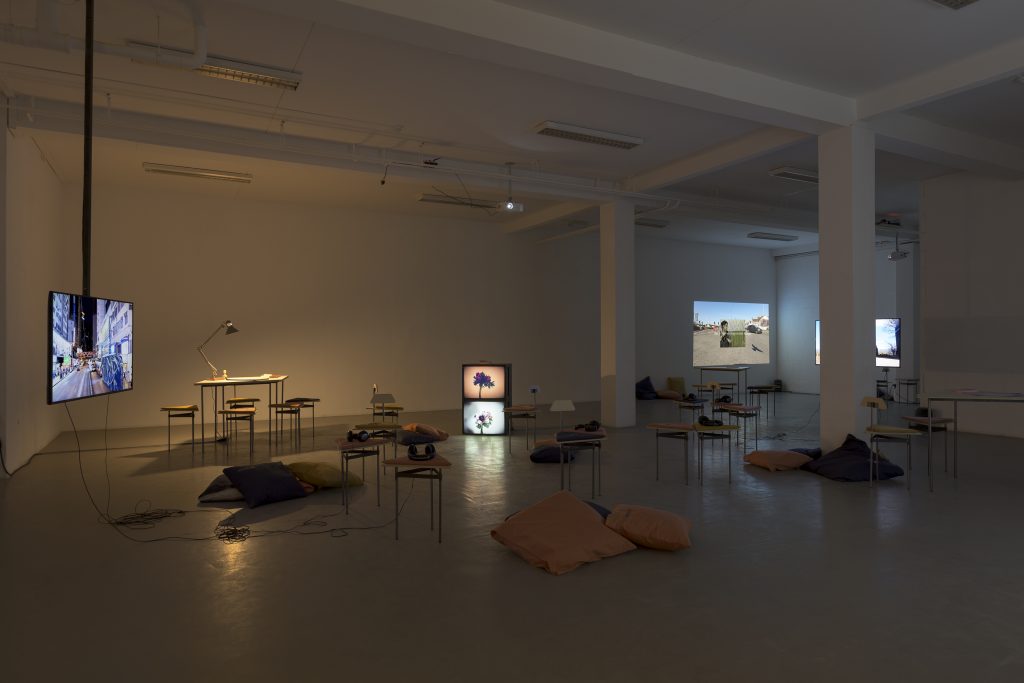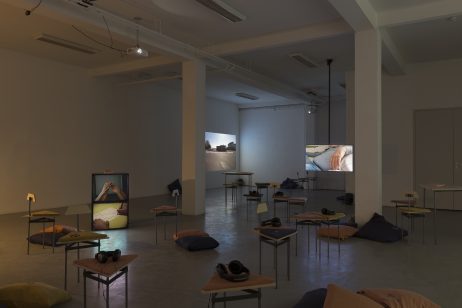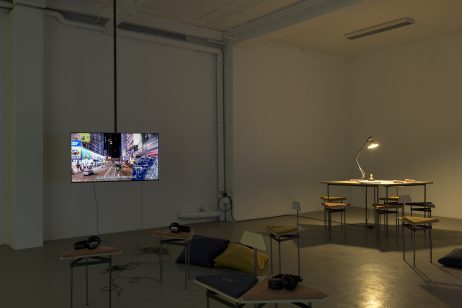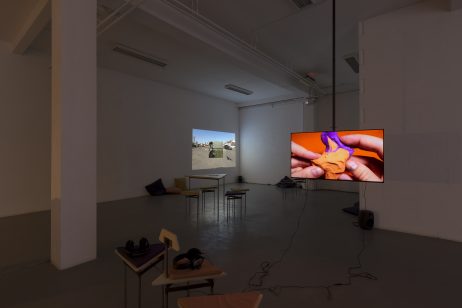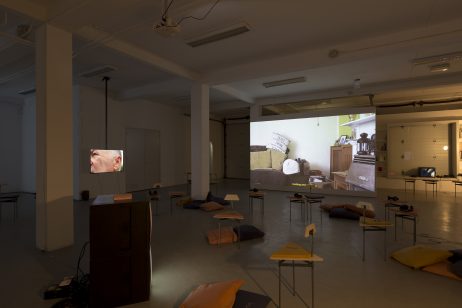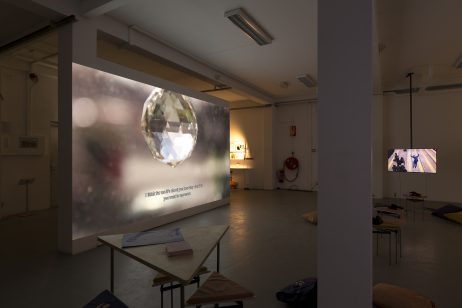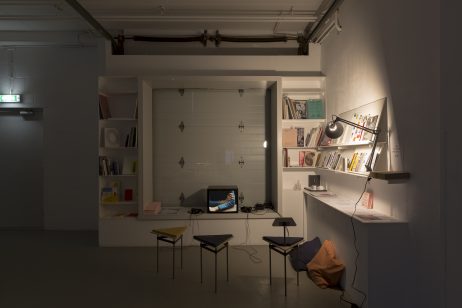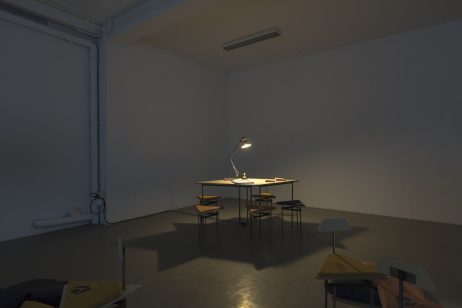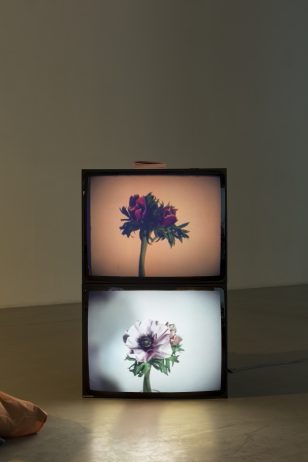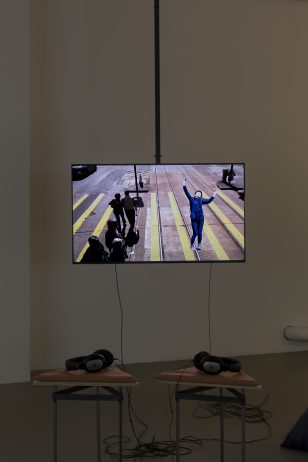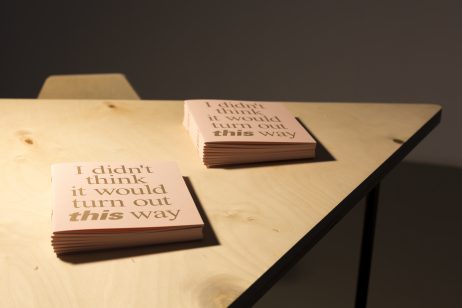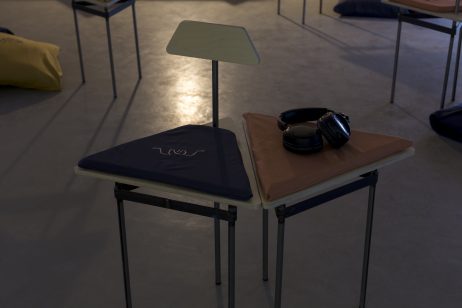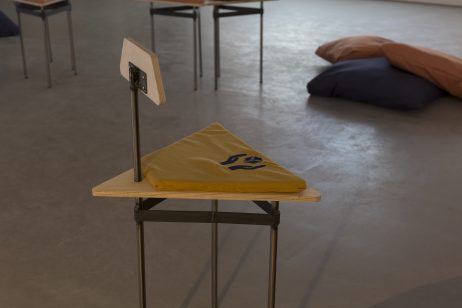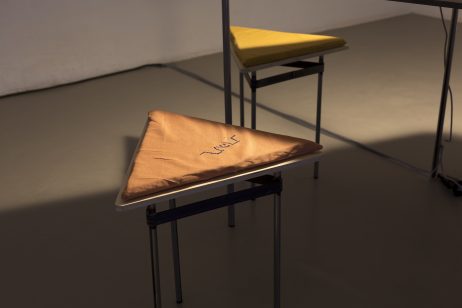The title for this exhibition, programmed by David Dale Gallery as part of an organisational exchange with P/////AKT, is taken from the opening words of Lauren Berlant’s introduction in a special edition of Critical Inquiry from 1998 entitled ‘Intimacy: A Special Issue’. This focus on intimacy as well as desire, togetherness, presence and absence opens reading into the mechanics of each moving image work but also provides a political underpinning to the programme as a whole. To exist as a limited group of objects bundled together, to act as a subjective survey of sorts, a round-up of activity by artists making moving image work in Glasgow in 2021, is an intimate affair.
Intimacy is, as Berlant describes, ‘an aspiration for a narrative about something shared, a story about oneself and others that will turn out in a particular way.’ It is inherently an optimistic endeavour but one that is riddled with tacit fantasies, rules and the inconvenient complication that we cannot guarantee a favourable outcome. Within this desired shared agreement our private concerns are held towards and within the public domain, evidencing a hegemonic spatial taxonomy of public and private, as concretised by a Victorian fantasy of un/controllable binaries, e.g. the public as work, male, hetero, coloniser, and the private as a space for family, the female, queer, colonised.
In I you me we us (2018) Margaret Salmon centres moments of longing and physical togetherness; personal accounts of the influence of inheritance and monstrosity are exposed in Daddy’s Boy (2020) by Renèe Helèna Browne; and local histories considering the necessity for communal recognition are recorded in A love (2019) by Anne-Marie Copestake. In Textures Gestures Meshes Measures (2021), Clarinda Tse considers desires for and experiments with occupation as a form of resistance; Aman Sandhu presents efforts towards a proximity and reshaping of personal-historical narratives in The Magic Roundabout (2021); and Mathew Parkin defines moments of lack, grief and detachment (of the self or another) in Vaseline (2018).
In early modern Western Europe, the bourgeois creation of an intimate and democratic ‘public sphere’ (as Jürgen Habermas defined it in The Structural Transformation of the Public Sphere: An Inquiry into a category of Bourgeois Society (1962)), as evidenced within salons and cafés allowed a new liberal society to exercise their social critical function. The cinema–or a space for viewing films like this one–is an environment which generates both an active intimate engagement and a collective experience, where entertainment and pleasure are unapologetically bound and problematised.
Harriet Rose Morley’s designs for chairs and tables constructed in collaboration with Bo Wielders, make this viewing space both active and communal. The viewer is invited to pull up a chair to watch the films or read this publication (maybe at one of the tables) or take a moment. Built in response to the screening programme and with consideration to the differing lengths of the moving image works, the furniture speaks to Morley’s concerns around accessibility, care, and challenging dominant methodologies – her maxim to be ‘always under construction’.
As Berlant states, intimacy is a destabilising action in its instantiation of a desire for something better that is often in opposition to the norm. Not a disruption of personal and collective desires, as hegemonic powers would believe, but optimistic and aspirational outside of neoliberal intention. To hum with Berlant: ‘to rethink intimacy is to appraise how we have been and how we live and how we might imagine lives that make more sense than the ones so many are living.’
There will be a publication available at P/////AKT and online featuring writing by Aman Sandhu, Mathew Wayne Parkin and Margaret Salmon, and designed by Phoebe Kerr. I didn’t think it would turn out this way has been programmed by Caitlin Merrett King, Programme Coordinator at David Dale Gallery, Glasgow, as the first part in an organisational exchange with P/////AKT, Amsterdam who will present an exhibition at David Dale Gallery in early 2022. Find an online version here.

